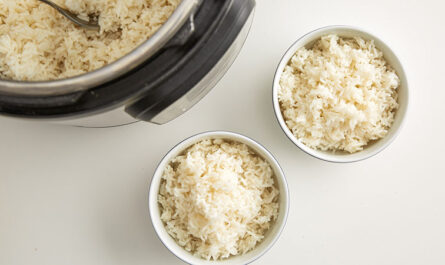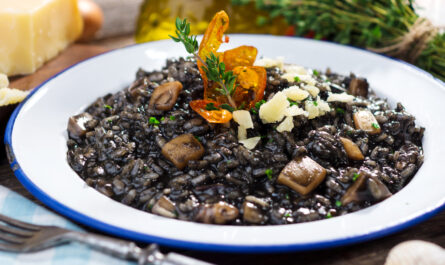In recent years, black rice has gained popularity not just for its unique flavor and texture, but also for its potential health benefits. One area where it is believed to have a positive impact is joint health. This article aims to delve into the relationship between black rice and joint health, providing insights into how this ancient grain may contribute to maintaining healthy joints.
Black rice, often referred to as ‘forbidden rice,’ is a nutrient-dense grain known for its rich color and high antioxidant content. These properties make it a valuable addition to the diet, especially for those interested in promoting joint health. Sushi enthusiasts might find it particularly appealing, as it adds an intriguing twist to traditional sushi dishes while offering potential health benefits.

What is Black Rice?
Black rice is a variety of rice that is characterized by its dark purple-black hue. This distinctive color is due to the presence of anthocyanins, which are powerful antioxidants. Unlike white rice, black rice retains its outer bran layer, preserving its nutritional content. This whole grain is packed with essential nutrients such as fiber, protein, and iron, making it a valuable dietary component.
The Role of Antioxidants in Joint Health
Antioxidants play a crucial role in maintaining joint health by combating oxidative stress and reducing inflammation. The anthocyanins found in black rice are known for their potent antioxidant properties. These compounds help neutralize free radicals, which can cause damage to cells and tissues, including those in the joints. By incorporating black rice into your diet, you may potentially support joint health and reduce the risk of joint-related issues.
Research on Black Rice and Joint Health
Several studies have explored the potential benefits of black rice in promoting joint health. While more research is needed, preliminary findings suggest that black rice may have anti-inflammatory effects, which could be beneficial for individuals with joint pain or conditions such as arthritis. The high antioxidant content in black rice may also contribute to reducing inflammation and supporting overall joint function.
Black Rice in Your Diet
Incorporating black rice into your diet is a delicious and nutritious way to support joint health. Its unique flavor and texture make it a versatile ingredient that can be used in a variety of dishes, including sushi. For sushi lovers, using black rice can add an exciting twist to traditional rolls while providing potential health benefits.
Black rice can be paired with a variety of ingredients to create flavorful sushi rolls. Consider combining it with fresh vegetables, lean proteins, and healthy fats to create a balanced meal. The combination of black rice and nutrient-rich ingredients can further enhance the nutritional value of your sushi, supporting both joint health and overall well-being.
Vitamin B Benefits
Vitamin B is essential for various bodily functions, including maintaining healthy joints. Black rice contains a range of B vitamins, which play a role in reducing inflammation and supporting joint health. By incorporating black rice into your diet, you can increase your intake of these essential nutrients and potentially improve joint function.
Intermittent Fasting
Black rice can be a nutritious option for those practicing intermittent fasting. Its high fiber content and nutrient density make it a filling and satisfying choice during eating windows. Additionally, the antioxidants in black rice may help reduce inflammation and support joint health, aligning with the goals of many individuals practicing intermittent fasting.
Allergy Concerns
While black rice is generally considered safe for consumption, some individuals may experience allergic reactions. It is important to be aware of any potential allergies or sensitivities when incorporating black rice into your diet. If you experience any adverse reactions, consult with a healthcare professional to determine the best course of action.
Raw Consumption
Black rice should be cooked before consumption to ensure proper digestion and nutrient absorption. Eating raw black rice is not recommended, as it may be difficult to digest and could potentially cause digestive discomfort. Cooking black rice allows you to enjoy its full nutritional benefits while minimizing any potential risks.
Conclusion
In conclusion, black rice is a nutrient-rich grain that offers potential benefits for joint health. Its high antioxidant content, particularly anthocyanins, may help reduce inflammation and support overall joint function. By incorporating black rice into your diet, especially in sushi dishes, you can enjoy a delicious and nutritious meal that contributes to maintaining healthy joints.

FAQs
Is black rice good for arthritis?
While more research is needed, the antioxidants in black rice may help reduce inflammation and support joint health, potentially benefiting individuals with arthritis.
Can black rice be eaten daily?
Yes, black rice can be included in your daily diet as part of a balanced meal plan. Its nutrient density and antioxidant properties make it a healthy choice for regular consumption.
What are the side effects of black rice?
Black rice is generally safe for consumption. However, individuals with allergies or sensitivities should exercise caution. If you experience any adverse reactions, consult with a healthcare professional.
This article contains affiliate links. We may earn a commission at no extra cost to you.




